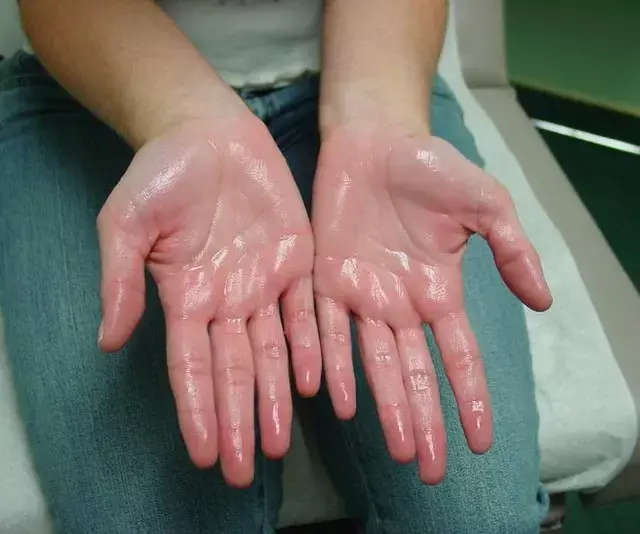- Home
- Medical news & Guidelines
- Anesthesiology
- Cardiology and CTVS
- Critical Care
- Dentistry
- Dermatology
- Diabetes and Endocrinology
- ENT
- Gastroenterology
- Medicine
- Nephrology
- Neurology
- Obstretics-Gynaecology
- Oncology
- Ophthalmology
- Orthopaedics
- Pediatrics-Neonatology
- Psychiatry
- Pulmonology
- Radiology
- Surgery
- Urology
- Laboratory Medicine
- Diet
- Nursing
- Paramedical
- Physiotherapy
- Health news
- Fact Check
- Bone Health Fact Check
- Brain Health Fact Check
- Cancer Related Fact Check
- Child Care Fact Check
- Dental and oral health fact check
- Diabetes and metabolic health fact check
- Diet and Nutrition Fact Check
- Eye and ENT Care Fact Check
- Fitness fact check
- Gut health fact check
- Heart health fact check
- Kidney health fact check
- Medical education fact check
- Men's health fact check
- Respiratory fact check
- Skin and hair care fact check
- Vaccine and Immunization fact check
- Women's health fact check
- AYUSH
- State News
- Andaman and Nicobar Islands
- Andhra Pradesh
- Arunachal Pradesh
- Assam
- Bihar
- Chandigarh
- Chattisgarh
- Dadra and Nagar Haveli
- Daman and Diu
- Delhi
- Goa
- Gujarat
- Haryana
- Himachal Pradesh
- Jammu & Kashmir
- Jharkhand
- Karnataka
- Kerala
- Ladakh
- Lakshadweep
- Madhya Pradesh
- Maharashtra
- Manipur
- Meghalaya
- Mizoram
- Nagaland
- Odisha
- Puducherry
- Punjab
- Rajasthan
- Sikkim
- Tamil Nadu
- Telangana
- Tripura
- Uttar Pradesh
- Uttrakhand
- West Bengal
- Medical Education
- Industry
Oxybutynin effective treatment option for hyperhidrosis

A new study published in Archives of Dermatological Research shows the importance of oxybutynin as a hyperhidrosis therapy must be emphasized for clinicians.
A physiological method of regulating body temperature in humans is sweating. A somatic illness known as hyperhidrosis causes excessive sweating in a specific location due to overactive sweat glands. The sufferers' quality of life is significantly impacted. We want to find out how well oxybutynin works to treat hyperhidrosis and how satisfied patients are with the medication. In order to better understand patient satisfaction and the efficacy of oxybutynin in treating hyperhidrosis, this study was done.
The protocol for this systematic review and meta-analysis was prospectively reported by researchers on PROSPERO. The PRISMA statement reporting requirements were followed while reporting this systematic review and meta-analysis. MeSH phrases were used to search three electronic databases (Scopus, PubMed, and Web of Science) from the beginning through June 2, 2022. Research compared hyperhidrosis patients who got oxybutynin versus a placebo. The Cochrane risk of bias assessment tool (ROB2) for randomized controlled trials was used to evaluate the risk of bias. Using a random effect model with 95% confidence intervals, the risk ratio was estimated for categorical variables, while the mean difference was determined for continuous variables (CI).
The key findings of this study were:
1. The meta-analysis includes six trials with 293 patients in total.
2. Patients were randomly randomized to receive either Oxybutynin or a placebo in each study.
3. An improvement in HDSS was provided by oxybutynin. It may also raise one's standard of living.
4. For dry mouth, there is no distinction between oxybutynin and placebo.
Experts advise doing further high-quality, homogenous, well-designed RCTs with HH patients who are genuinely ill in order to examine the effectiveness and safety of oxybutynin. Future studies should assess how the drug's side effects affect the patient's quality of life and determine what to do if the patient cannot tolerate the medication. Future research should compare the outcomes of various treatment modalities. Finally, they advise using oxybutynin in individuals with HH until more evidence is developed.
Reference:
El-Samahy, M., Mouffokes, A., Badawy, M. M., Amro, S., Fayad, T., & Abdelwahab, O. A. (2023). Safety and efficacy of oxybutynin in patients with hyperhidrosis: systematic review and meta-analysis of randomized controlled trials. In Archives of Dermatological Research. Springer Science and Business Media LLC. https://doi.org/10.1007/s00403-023-02587-5
Neuroscience Masters graduate
Jacinthlyn Sylvia, a Neuroscience Master's graduate from Chennai has worked extensively in deciphering the neurobiology of cognition and motor control in aging. She also has spread-out exposure to Neurosurgery from her Bachelor’s. She is currently involved in active Neuro-Oncology research. She is an upcoming neuroscientist with a fiery passion for writing. Her news cover at Medical Dialogues feature recent discoveries and updates from the healthcare and biomedical research fields. She can be reached at editorial@medicaldialogues.in
Dr Kamal Kant Kohli-MBBS, DTCD- a chest specialist with more than 30 years of practice and a flair for writing clinical articles, Dr Kamal Kant Kohli joined Medical Dialogues as a Chief Editor of Medical News. Besides writing articles, as an editor, he proofreads and verifies all the medical content published on Medical Dialogues including those coming from journals, studies,medical conferences,guidelines etc. Email: drkohli@medicaldialogues.in. Contact no. 011-43720751


